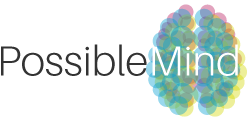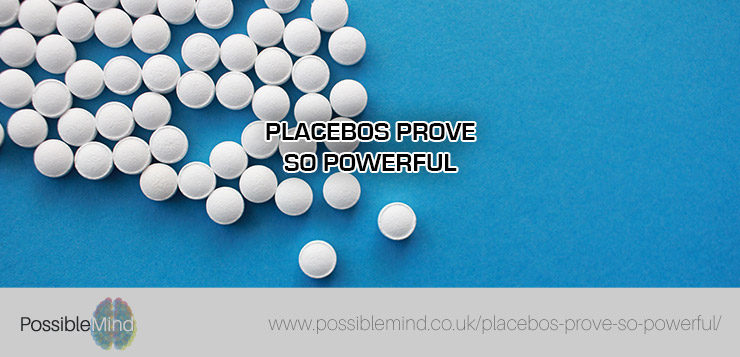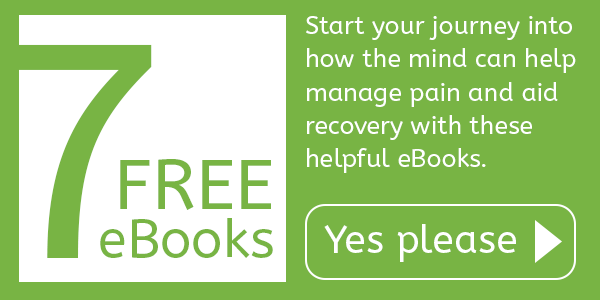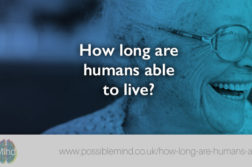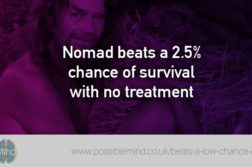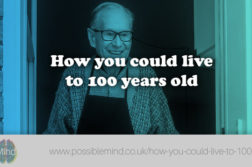Placebos Prove So Powerful Even Experts Are Surprised; New Studies Explore the Brain’s Triumph Over Reality.
Many doctors know the story of ”Mr. Wright,” who was found to have cancer and in 1957 was given only days to live. Hospitalized in Long Beach, Calif., with tumors the size of oranges, he heard that scientists had discovered a horse serum, Krebiozen, that appeared to be effective against cancer. He begged to receive it.
His physician, Dr. Philip West, finally agreed and gave Mr. Wright an injection on a Friday afternoon. The following Monday, the astonished doctor found his patient out of his ”death bed,” joking with the nurses. The tumors, the doctor wrote later, ”had melted like snowballs on a hot stove.”
Two months later, Mr. Wright read medical reports that the horse serum was a quack remedy. He suffered an immediate relapse. ”Don’t believe what you read in the papers,” the doctor told Mr. Wright. Then he injected him with what he said was ”a new super-refined double strength” version of the drug. Actually, it was water, but again, the tumor masses melted.
Mr. Wright was ”the picture of health” for another two months — until he read a definitive report stating that Krebiozen was worthless. He died two days later.
Doctors who know this story dismiss it as one of those strange tales that medicine cannot explain. The idea that a patient’s beliefs can make a fatal disease go away is too bizarre.
But now scientists, as they learn that the placebo effect is even more powerful than anyone had been able to demonstrate, are also beginning to discover the biological mechanisms that cause it to achieve results that border on the miraculous. Using new techniques of brain imagery, they are uncovering a host of biological mechanisms that can turn a thought, belief or desire into an agent of change in cells, tissues and organs. They are learning that much of human perception is based not on information flowing into the brain from the outside world but what the brain, based on previous experience, expects to happen next.
Placebos are ”lies that heal,” said Dr. Anne Harrington, a historian of science at Harvard University. A placebo, Latin for ”I shall please,” is typically a sham treatment that a doctor doles out merely to please or placate anxious or persistent patients, she said. It looks like an active drug but has no pharmacological properties of its own.
Until fairly recently, nearly all of medicine was based on placebo effects, because doctors had little effective medicine to offer. Through the 1940’s, American doctors handed out sugar pills in various shapes and colors in a deliberate attempt to induce placebo responses.
Nowadays, doctors have real medicines to fight disease. But these treatments have not diminished the power of the placebo.
Doctors in Texas are conducting a study of arthroscopic knee surgery that uses general anesthesia in which patients with sore, worn knees are assigned to one of three operations — scraping out the knee joint, washing out the joint or doing nothing. In the ”nothing” operation, doctors anesthetize the patient, make three little cuts in the knee as if to insert the usual instruments and then pretend to operate. Two years after surgery, patients who underwent the sham surgery reported the same amount of relief from pain and swelling as those who had had the real operations.
A recent review of placebo-controlled studies of modern antidepressant drugs found that placebos and genuine drugs worked about as well. ”If you expect to get better, you will,” said Dr. Irving Kirsch, a psychiatrist at the University of Connecticut who carried out the review. His findings were met with a great deal of skepticism.
And a recent study of a baldness remedy found that 86 percent of men taking it either maintained or showed an increase in the amount of hair on their heads. But so did 42 percent of the men taking a placebo.
Some studies are specifically designed to explore the power of placebos rather than drugs. On Coche Island in Venezuela, asthmatic children were given a sniff of vanilla along with a squirt of medicine from a bronchodilator twice a day. Later, the vanilla odor alone increased their lung function, 33 percent as much as did the bronchodilator alone.
And at Tulane University, Dr. Eileen Palace is using a placebo to restore sexual arousal in women who say they are nonorgasmic. The women are hooked up to a biofeedback machine that they are told measures their vaginal blood flow, an index of arousal. Then they are shown sexual stimuli that would arouse most women. But the experimenter plays a trick on the women by sending, within 30 seconds, a false feedback signal that their vaginal blood flow has increased. Almost immediately they then become genuinely aroused.
Placebos are about 55 percent to 60 percent as effective as most active medications like aspirin and codeine for controlling pain, Dr. Kirsch said. Moreover, placebos that relieve pain can be blocked with a drug, naloxone, that also blocks morphine.
For a while, many scientists thought that placebos might work by releasing the body’s natural morphine-like substances, called endorphins. But that is not the only explanation, he said. While placebos can act globally on the body, they can also have extremely specific effects. For example, a study was carried out in Japan on 13 people who were extremely allergic to poison ivy. Each was rubbed on one arm with a harmless leaf but were told it was poison ivy and touched on the other arm with poison ivy and told it was harmless. All 13 broke out in rash where the harmless leaf contacted their skin. Only two reacted to the poison leaves.
Studies have shown, time and again, that placebos can work wonders. Like ”real drugs,” they can cause side effects like itching, diarrhea and nausea. They can lead to changes in pulse rate, blood pressure, electrical skin resistance, gastric function, penis engorgement and skin conditions. The question is, why? Explanations of why placebos work can be found in a new field of cognitive neuropsychology called expectancy theory — what the brain believes about the immediate future.
Like classical conditioning theory (Pavlov’s dogs salivate at the sound of the bell), expectancy involves associative learning. The medical treatments you get during your life are conditioning trials, Dr. Kirsch said. The doctor’s white coat, nurse’s voice, smell of disinfectant or needle prick have acquired meaning through previous learning, producing an expectation of relief from symptoms. Each pill, capsule or injection is paired with active ingredients, and later, if you get a pill without active ingredients, you can still get a therapeutic effect, he said.
Such conditioning shows how expectations are acquired, Dr. Kirsch said. But it does not explain the strength and persistence of placebo effects. These responses occur almost instantly, with no apparent conscious thought, and are therefore wired firmly into the brain, he said.
Response expectations are strong because the world is filled with ambiguity. A long thin object seen in dim light could be a stick or a snake. But it may not be safe to take the time to find out. So people evolved a mechanism to anticipate what is going to occur. This expectation speeds the perceptual processing at the expense of accuracy.
As in the outside world, people’s internal states have inherent ambiguity. That is why, when people in an experiment were given a drug that produced a surge of adrenaline, they interpreted the feeling as anger, euphoria or nothing at all, depending on what they had been told to expect.
Critics of alternative medicine say its enduring appeal is explained by the placebo effect. When conventional therapies fail to help chronic or poorly understood conditions, the acupuncturist, homeopathist or chiropractor steps into the breach with a potent belief system ready-made to help the suffering patient. ”If a guy in a white coat or a guy dressed in feathers can induce a patient’s immune system to fight back, who is to say which is better?” said Dr. Dan Molerman, a medical anthropologist at the University of Michigan at Dearborn.
Support for the expectancy theory emerged about 10 years ago, when many scientists realized how closely the brain, the immune system and the hormone production of the endocrine system are linked. Chronic stress sets into motion a cascade of biological events involving scores of chemicals in the body — serotonin, cortisol, cytokines, interleukins, tumor necrosis factor and so on.
Such stress lowers resistance to disease and alters gene expression. When people are under stress, wounds tend to heal more slowly, latent viruses like herpes erupt and brain cells involved in memory formation die off. The precise molecular steps underlying all of these changes have been mapped out.
But what about the opposite? Can a thought or belief produce a chemical cascade that leads to healing and wellness? Researchers studying placebos think the answer is yes, and they offer several ways it might work:
- A placebo might reduce stress, allowing the body to regain some natural, optimum level called health.
- Special molecules may exist that help carry out placebo responses. For example, a recent study found that stressed animals can produce a valium-like substance in their brains, but only if they have some control over the source of the stress. People almost certainly have similar brain chemistry.
- Placebos may draw their power from the way the brain is organized to act on what experience predicts will happen next.
Dr. Marcel Kinsbourne, a neuroscientist at the New School for Social Research in New York, explains it this way: The brain generates two kinds of activation patterns, which arise from networks of neurons firing together. One type is set in motion by information flowing into the brain from the outside world — smells, tastes, visual images, sounds. At the same time, the cortex draws on memories and feelings to generate patterns of brain activity related to what is expected to happen.
The top-down patterns generated by the cortex intersect smoothly with the bottom-up patterns to inform us about what is happening, Dr. Kinsbourne said. If there is a mismatch, the brain tries to sort it out, without necessarily designating one set of patterns as more authoritative than another.
The expectations that result are internally generated brain states that can be as real as anything resulting purely from the outside world. For example, recent experiments with monkeys show that if they expect a reward like a sip of apple juice, cells in their brains fire 20 to 30 seconds before they actually receive it. In other words, expectancies are embedded in the brain’s neurochemistry.
”We are misled by dualism or the idea that mind and body are separate,” said Dr. Howard Fields, a neuroscientist at the University of California at San Francisco who studies placebo effects. A thought is a set of neurons firing which, through complex brain wiring, can activate emotional centers, pain pathways, memories, the autonomic nervous system and other parts of the nervous system involved in producing physical sensations, he said.
Morphine will alter brain patterns to reduce pain. So will a placebo. Obviously, placebos have limits. Mr. Wright’s miraculous remission aside, most people cannot think, hope or believe their way out of cancer or AIDS.
As Dr. Howard Spiro, a gastroenterologist at Yale University, put it: Some diseases are unleashed with the power of a firehose. Others unfold at a trickle, and perhaps those are the ones amenable to placebo effects.
This article and material was written by Sandra Blakeslee and was originally published on www.nytimes.com on October 13, 1998.
If you like this post you will also enjoy:
- Imagery Can Help You Recover from Injuries and Illness – Learn Mind Power With John Kehoe.
- Mind Power and Belief for Recovery and Healing.
- How Athletes Recover Quicker Using Mind Power.
- The Healing Power of Illness Book Overview.
Further Reading:
